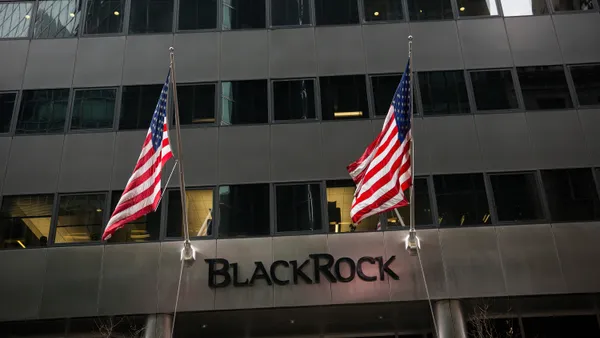Dive Brief:
- Millennial and Gen Z investors are less concerned with environmental, social and governance issues than last year, according to a recent survey from the Stanford Graduate School of Business.
- Sixty-six percent of investors aged 41 years and younger wanted fund managers to advocate for environmental change even if it decreased the value of their investment, which is down from 85% last year.
- The survey highlights less willingness by most Gen Z or millennial investors to risk their personal wealth to advance social causes, with a majority willing to lose no more than 5% of their wealth to bring change in the workplace, while they were on average willing to lose twice as much last year.
Dive Insight:
The survey showed investors across all ages are more risk-averse this year. For Gen X investors (42 to 57 years old), 45% were willing to lose money in support of environmental change, down from 63% in 2022, while baby boomers (58 years and older) remain opposed to the idea of losing retirement savings to bring about environmental change.
However, while all generations reported a drop in ESG support, the study revealed a significant change in the investment preferences of Gen Z and millennials.
“Just one year ago, young investors told us overwhelmingly that they were very concerned about environmental and social issues, and they wanted the fund managers that invest their savings to use their size and voting power to advocate for change, even if it meant a loss of personal wealth,” David Larcker, Stanford Graduate School of Business professor, said in the report.
Middle-aged investors also saw dips in their optimism and prioritization of ESG-related investments, but the change was most dramatic in younger investors, according to the survey.
"It could be that the high number of polarizing events over the last year alienated members of the population," Amit Seru, finance professor at Stanford and a senior fellow at the Hoover Institution, said in the report.
The 993 individual investors surveyed had more modest expectations for future stock market growth than respondents last year.
"[I]t might be that economic pressure — such as rising costs for basic goods and services due to inflationary pressure and higher interest rates due to Fed tightening — soured their taste for environmental and social advocacy," Seru said.
U.S. investors have pulled $14.2 billion from sustainable funds over the past year, financial services firm Morningstar reported in September. Market volatility and global macroeconomic pressures, such as persistent inflation, climbing interest rates and fears of recession, were attributed in part to this retreat.
However, while investors have shown less support for ESG issues, 2023 was a record year for ESG considerations at corporate annual general meetings. Proxy Preview said this spring shareholders filed more than 500 ESG-related resolutions, and Diligent Marketplace Intelligence said a record number of those resolutions went to a vote. Resolutions ranged from fair pay and fair treatment at work to accurate corporate carbon accounting, according to Proxy Preview. Diligent noted a shrinking approval rate for environmental and social proposals.
The shareholder advocacy nonprofit As You Sow reported leading 210 corporate engagements with 169 companies this year, ranging from climate change to diversity, equity and inclusion, to racial justice issues. During the 2022 proxy season, the organization had 196 engagements with 156 companies.
Despite this, the Stanford survey shows support for ESG issues appears to wane as economic pressures mount. In 2022, 70% of investors aged 41 years and younger were very concerned about environmental issues, but the figure dropped to 49% in the updated survey.
“Lower support for ESG is taking place in a larger context of economic pessimism,” Seru said.
Sustainability-focused product demand slowed last quarter: Just three sustainable funds launched during the third quarter, which is fewer than at any point in the last three years, according to Morningstar. Twenty-seven funds had launched in the previous quarter.
The survey was conducted by the Stanford Graduate School of Business, the Hoover Institution Working Group on Corporate Governance and the Rock Center for Corporate Governance.











